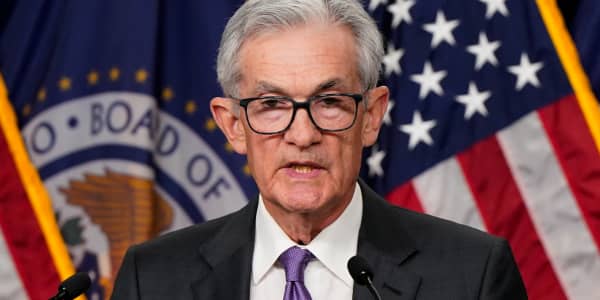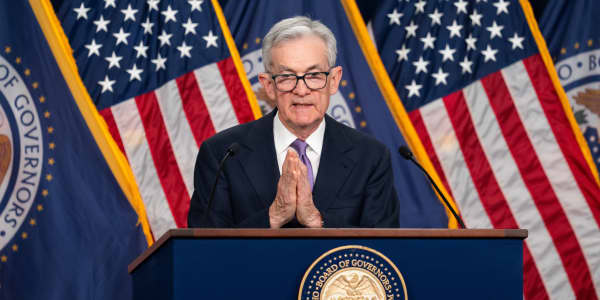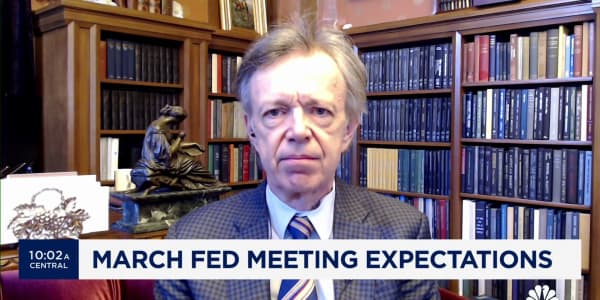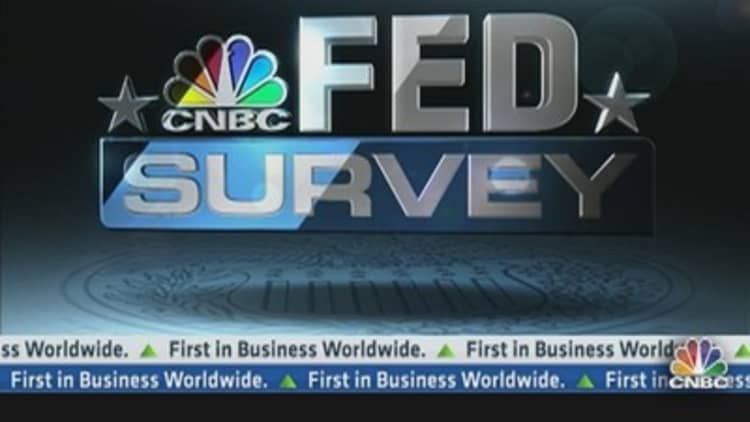
Wall Street is sending a sharp and unambiguous message to Washington: cut spending and solve the deficit problem now and don't do it with more revenue.
The January CNBC Fed Survey finds eight of 10 respondents agreeing with the statement the U.S. should "urgently enact a plan that puts it on a path toward a sustainable budget deficit." Only 20 percent believe the U.S. has time to enact such a plan or doesn't need one.
"Urgency remains for fiscal restructuring in U.S. and Europe," wrote Wall Street strategist Subodh Kumar of Subodh Kumar & Associates, in response to the survey. "Investors should be less complacent than current bond and stock markets indicate."
(Read More: Wall Street Uncertain When & How QE Ends)
By a three-to-two margin, the 52 respondents to the January survey — including economists, strategists and money managers — supported the statement that the U.S. needs to "enact spending cuts this year that take effect this year." The minority said the U.S. could cut spending next year or in 2015 or later. Only 2 percent said the U.S. does not need to enact any spending cuts.
"Clearly, at some point, the financial markets will become unsettled as our debt skyrockets and our refunding needs balloon," wrote Scott Wren of Wells Fargo Advisors. "As history shows, markets can go from jubilant to panic-mode in the blink of an eye."
(Read More: Economic Optimism Growing on Wall Street)
Still, Wall Street does not see a debt ceiling showdown this year: 86 percent believe Congress will raise the ceiling each time it is reached in 2013. Stuart Hoffman called the threat of a "fiscal cliff" or debt-ceiling default "defanged" and said it "will not suck the life blood out of an anemic U.S. expansion."
Investors should be less complacent than current bond and stock markets indicate.Subodh KumarSubodh Kumar & Associates
Survey respondents were more mixed on the issue of revenue than spending: 53 percent said the U.S. does not need any additional revenue. That compares with 46 percent who say the U.S. should boost revenue either this year, next year, or sometime in 2015 or later.
Meanwhile, Wall Street gave only a passing grade to Treasury Secretary-elect Jack Lew. A plurality of 39 percent gave him a "C" compared to 32 percent who gave him a "B" or higher. Another 28 percent gave him a "D" and lower.
(Read More: Interest Rates Are Climbing, but May Not Last Long)
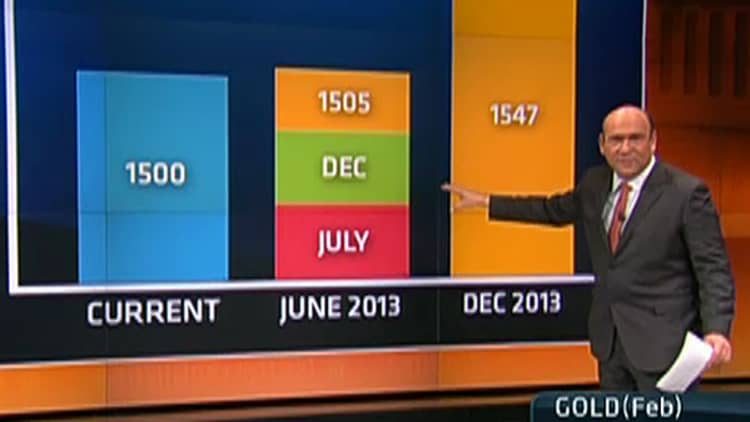
Former Treasury Secretary Tim Geithner got only a slightly higher grade: compared to Lew's 2.0 average, Geithner received a 2.2 average grade.
Click Here to Download Complete CNBC Fed Survey Results (PDF)
Diane Swonk of Mesirow Financial was among the few who graded Lew with an "A," saying, "Lew is important because he is a budget guy, and as much as he may not have done a deal recently, he has negotiated bi-partisan deficit reduction. He knows both sides of the ledger must be addressed."



